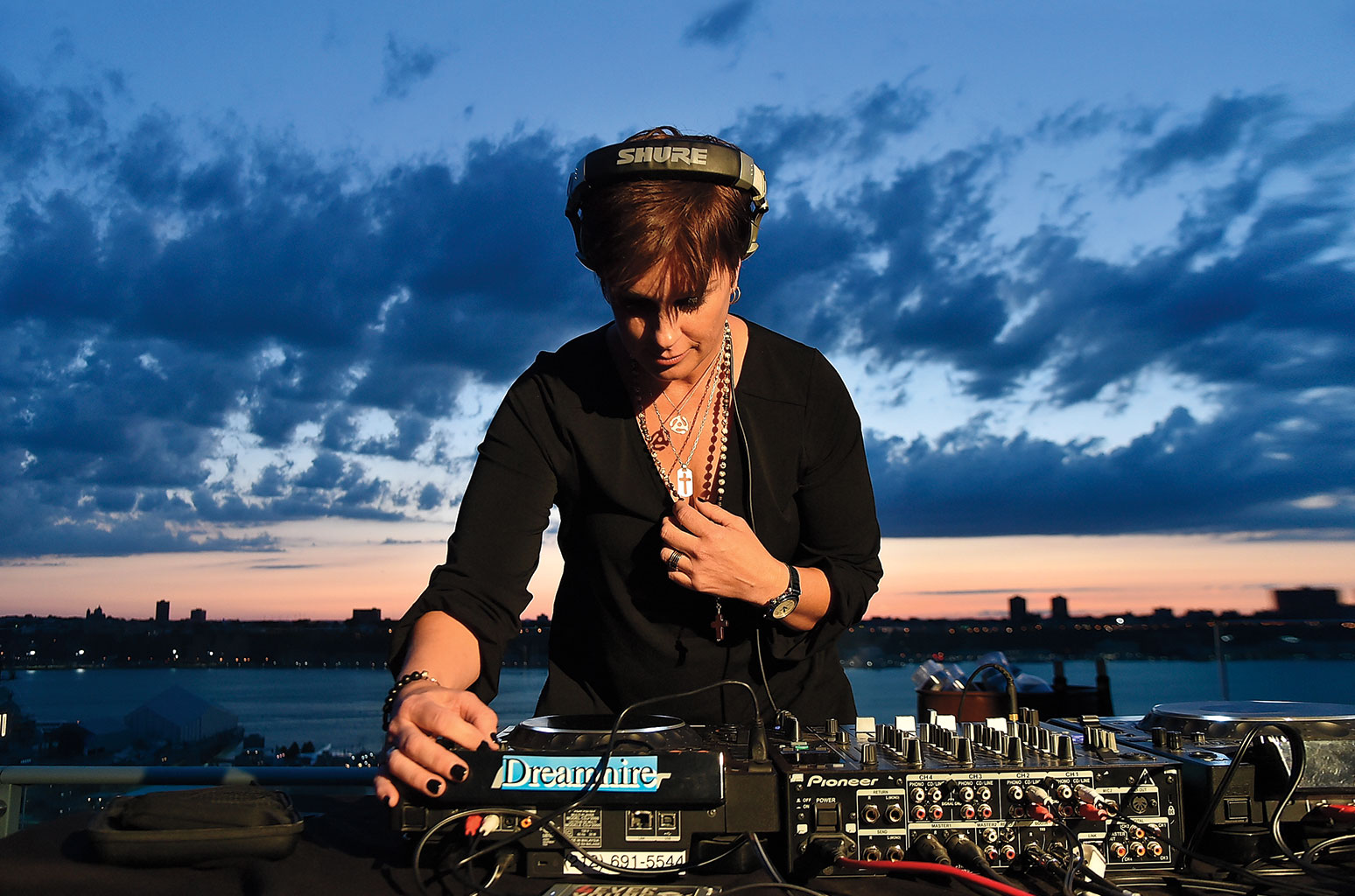Since the best remixed recording, non-classical category was introduced in 1998, over 80 producers have been nominated — all of them men. That’s just one reason Tracy Young broke down in tears upon learning she had received a nod this year for her remix of Madonna’s empowering anthem “I Rise.”
The DJ-producer came up in the Miami scene, in time becoming Madonna’s go-to party DJ and ultimately producing over a dozen official remixes for her. Having survived what she calls the “extremely” misogynistic ’90s dance scene, Young reflects on her pioneering nomination and what it might mean for her community.
What do you think makes a Grammy-worthy remix?
This category is somewhat technical; that’s why I’m so fascinated and excited about the nominees this year — these are all really well-produced songs. In the past, I think it [was] more of a popularity contest — they were big radio records.
You’ve remixed pop stars, but you’ve managed to strike a balance between the mainstream and underground.
For me, the goal is always to keep the integrity of the song. I’ve always felt that radio and commercial appeal is super important; that’s what sells music, and that’s how people have lifelong careers. I like the idea of being on the radio and also being played in a club. I think if you can reach that balance, you’ve done a good job.
Your first official remix for Madonna was of 2000’s “Music.” How did you start working together?
The first time I met her was at a nightclub in Miami called Liquid. Victor Calderone was DJ’ing, and she was there. My good friend Ingrid [Casares] introduced me, and that’s where it started — she passed a lot of my [DJ cassettes] on to Madonna. She told me they would run on the beach to my demos. Then, she started hiring me for parties.
What do you make of your nomination?
I’ve seen more and more female engineers in the studio, and I think moving forward, we will continue to be recognized. This field was and still is mostly dominated by men. But it is changing. I’ve definitely seen more women DJs, and hopefully, more women will come forward and start producing. I have hope.
This article originally appeared in the Jan. 25, 2020 issue of Billboard.



